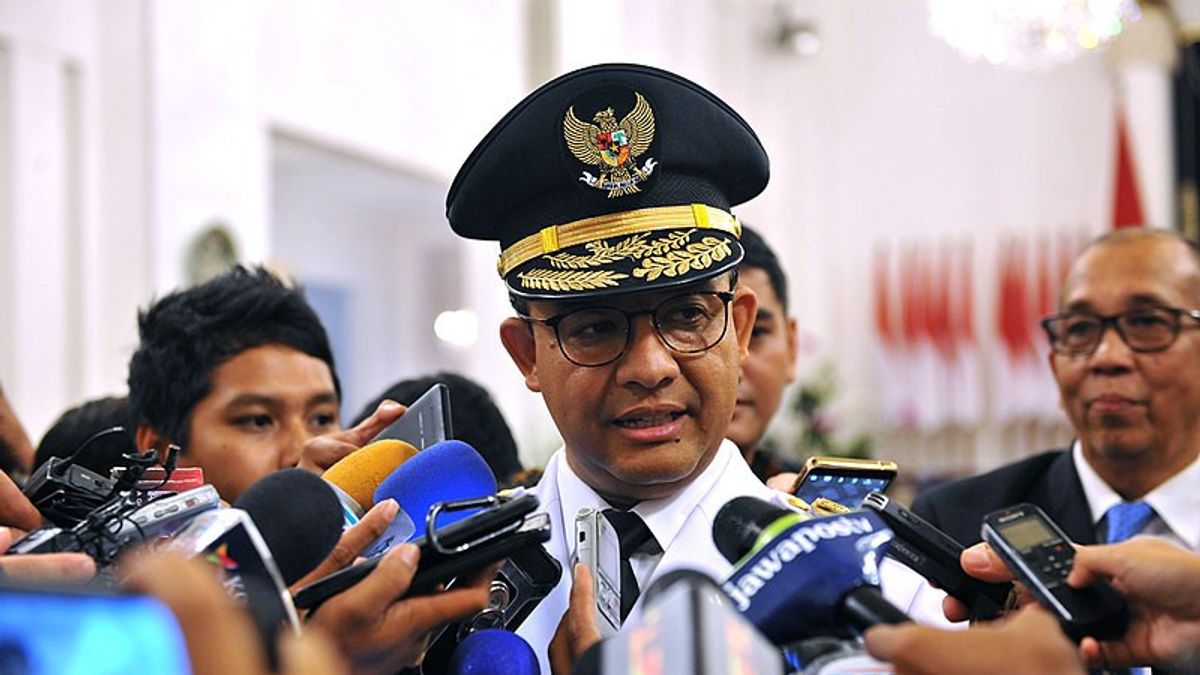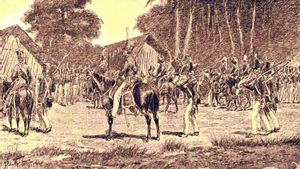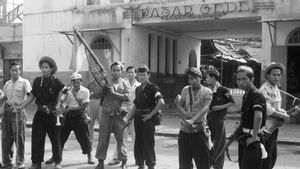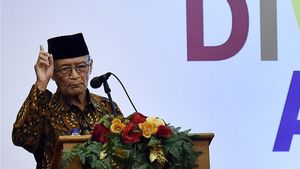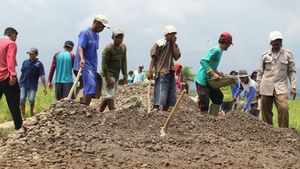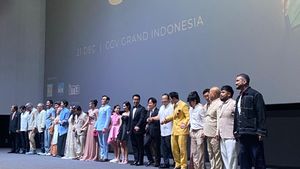JAKARTA Memories of today, six years ago, October 16, 2017, the Governor of DKI Jakarta, Anies Baswedan mentioned the Indonesian people with indigenous dictions in his political speech. The speech was perpetuated when he was officially appointed as Jakarta's number one person.
The indigenous diction provoked controversy. Previously, the term indigenous had been considered to be degrading the life of Indonesians. The term boils down to the ridicule of the Dutch colonialists. Therefore, the word native is prohibited from being said in the Indonesian government environment.
The colonial government of the Dutch East Indies often applies racist to the bumiputras. Racist sentiment is spread everywhere. From school buildings to trains. In fact, the natives are referred to as inlanders (pribumi).
The term really hurts the whole of the archipelago. This is because the Dutch colonialists classify people in the Dutch East Indies (now: Indonesia) into three classes. Class one, Europeans. Class two, Chinese, Arabs and other foreign easterners. Class three is the most humiliated and is often equated with animal, inlander or native classes.
A series of freedom fighters do not want to be called inlanders. They prefer the term natives over inlanders. They understand the term indigenous people have degraded the dignity of the whole archipelago.
The use of the term indigenous began to be evacuated when Indonesia was independent. However, the owner of power did not specifically prohibit this term. A new change took place when the Bacharuddin Jusuf (BJ) Habibie government took over.
Habibie said the term indigenous and non-native terms had disturbed the unity of Indonesia. The term indigenous - which was originally despicable - and non-natives now brings the impression of discriminating between one ethnicity and another. Even though they are both large and live in Indonesia.
Habibie took a stand. He then took an important breakthrough by issuing a Presidential Instruction on September 16, 1998. The instruction emphasized that the Indonesian government began to prohibit the use of the term indigenous and non-native in the scope of government. Then, the narrative was strengthened by the presence of Law (UU) Number 40 of 2008 concerning the Elimination of Racial and Ethnic Discrimination
PERTAMA: Stop the use of indigenous and non-native terms in all formulations and implementation of policies, program planning, or the implementation of government administration activities.
"Second: Providing equal treatment and services to all Indonesian citizens in the implementation of government, community and development services, and eliminating differences in all forms, properties and levels to Indonesian citizens, both on the basis of ethnicity, religion, race and origin in the implementation of these services," wrote the Presidential Instructure of the Habibie era regarding the term Indigenous- Non-Corruptional.
SEE ALSO:
The term, which has long been banned, is in fact being revived to the surface. The person behind it is Anies Baswedan, who incidentally is a public official. Anies instead used indigenous diction in his political speech after being inaugurated as Governor of DKI Jakarta at the Jakarta Congratulations event at DKI Jakarta City Hall on October 16, 2017.
Anies said that the indigenous diction depicted the Indonesian people being oppressed, then appeared to host in their own country. The term then gained attention from here and there. His statement was criticized for rising the taboo term among the government. Anies is considered to want to discriminate between ethnic groups.
When the speech was placed on the background of the 2017 DKI regional election atmosphere which was full of hatred and politicization of SARA (suku, religion, race and inter-group), the choice of indigenous diction was included in the so-calleddog-wistle politics, or dog whistle politics, which is a language that is consciously used as a code that can have different meanings for different groups. The message he conveys may not sound painful for most people.
"But behind that he was actually meant to be interpreted differently by certain groups of people who were deliberately targeted by the message. Instead of a pilkada winner who later appeared to be a leader for all his citizens, reflecting on the case Anies became more present himself like a bamboo group expert who, consciously or not, was at risk of being considered to be doing bamboo-split politics - divided," explained Hikmat Budiman in the book Sudah Senja in Jakarta (2020).
The English, Chinese, Japanese, Arabic, and French versions are automatically generated by the AI. So there may still be inaccuracies in translating, please always see Indonesian as our main language. (system supported by DigitalSiber.id)
